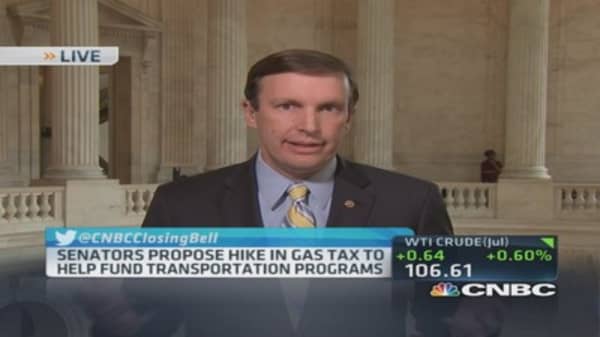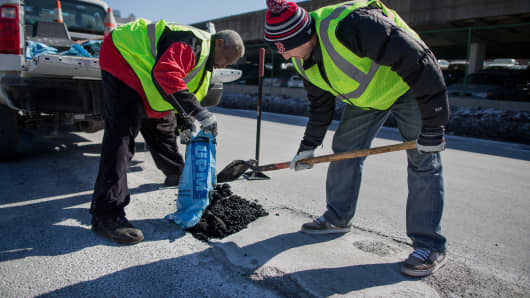You may be seeing a lot less road construction on the highway this summer.
After years of underfunding sent the federal Highway Trust Fund careening toward insolvency, state transportation officials are already postponing repair projects just as the critical summer construction season gets underway.
From Delaware to Oregon, state transportation officials have warned they may have to cancel projects outright until they are convinced that Congress will make good on its share of highway funding.
And unless Congress acts soon, "we could start bouncing checks for roadwork before our kids go back to school," warned Transportation Secretary Anthony Foxx in a blog post this week.
On Wednesday, two senators stepped up with a proposal to boost gasoline and diesel taxes to help replenish the fund.
Read MorePothole pain: The cost of this winter's pitted roadways
The federal gas tax—last raised in 1993—has been steadily losing purchasing power because it's not indexed to inflation. Declining fuel consumption has also reduced tax receipts and left the federal fund for road repair and construction running on empty.
Congress has been patching the fund with transfers from general revenues since 2008.
Now, the imminent insolvency has revived a long-running political battle over how to fund the repair and expansion of the nation's crumbling highways and bridges.





